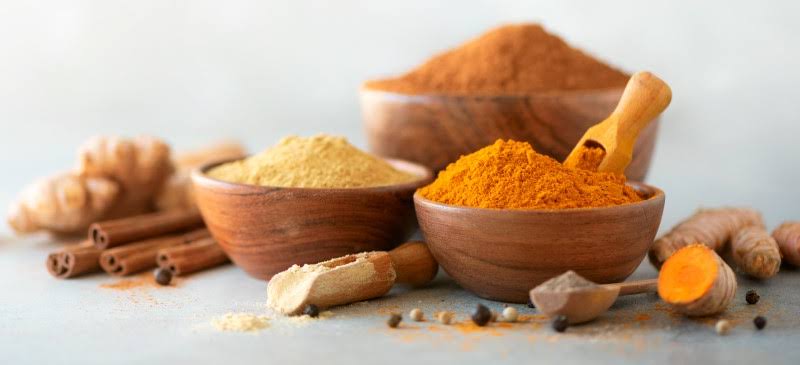Ayurveda is an ancient Indian holistic healing system that has been practiced for thousands of years. It is based on the belief that health and wellness depend on the balance between body, mind, and spirit. Ayurveda focuses on preventative care, using a variety of natural remedies to achieve and maintain optimal health. As it continues to gain popularity in the West, more and more people are discovering the amazing health benefits of ayurveda that can truly change their lives.
Table of Contents
1) Improves digestion
Ayurveda has been a powerful health-promoting system for centuries, and one of its main focuses is on improving digestion. Poor digestion can lead to several health problems, including poor nutrient absorption, food sensitivities, and chronic inflammation. Fortunately, Ayurveda offers an array of remedies and treatments to help improve digestive health.
Ayurveda suggests that the root cause of most digestive problems is due to an imbalance in the doshas, or energy elements. By using herbal supplements, diet and lifestyle adjustments, Ayurveda works to restore balance to the doshas and promote healthy digestion.
Herbal supplements like Triphala, ginger, fennel, and cumin can be used to stimulate digestion and soothe the digestive tract. Triphala is a combination of three fruits that are commonly used in Ayurvedic medicine to improve digestion and prevent constipation. Ginger helps to reduce bloating and abdominal discomfort by relieving gas. Fennel also helps reduce bloating while promoting better digestion. Cumin is a popular spice used in Ayurvedic cooking that helps support the digestive system.
In addition to herbal supplements, Ayurveda suggests that making dietary adjustments can help improve digestive health. Eating smaller meals more frequently throughout the day will help stimulate digestion. It’s also important to avoid processed foods, which can contribute to poor digestion. Eating whole, natural foods such as fresh fruits and vegetables will help provide essential nutrients that support digestion.
Ayurveda also emphasizes the importance of lifestyle adjustments for improving digestive health. Getting regular exercise, practicing yoga and meditation, and getting enough sleep are all essential for improving digestion. Stress can also hurt digestion, so it’s important to take time for yourself to relax and unwind each day.
By following the principles of Ayurveda, you can improve your digestive health and feel better overall. With its holistic approach to health, Ayurveda can help you regain balance in your life and enjoy optimal wellness.

2) Reduces Stress and Anxiety
Ayurveda has long been touted as one of the most effective natural remedies for reducing stress and anxiety. It works by balancing the body’s energy and helping to restore a sense of calmness and peace. Through daily practice of Ayurvedic techniques, like yoga, meditation, and breathing exercises, you can help to reduce your stress levels and improve overall mental health.
Herbal supplements, such as ashwagandha, brahmi, and shatavari are known for their calming properties and have been used for centuries to reduce stress and anxiety. These herbs work by regulating cortisol levels in the body, which can help to relieve tension and ease symptoms of anxiety.
Additionally, specific Ayurvedic treatments like Abhyanga (a type of massage) can be incredibly beneficial for reducing stress levels. Abhyanga helps to relax the body while also stimulating circulation and aiding in detoxification. In addition to this, Abhyanga can help improve sleep quality which is essential for managing stress levels.
Finally, it’s important to remember that Ayurveda encourages people to take a holistic approach to life. This means focusing on creating healthy habits that promote mental and emotional well-being. Taking time for yourself each day to practice yoga, read, meditate or simply relax is essential for reducing stress and anxiety levels.

3) Boosts Energy Level
Ayurveda is a holistic approach to health that promotes the use of natural remedies to improve overall wellness. One of the most notable benefits of this ancient practice is its ability to boost energy levels. There are several reasons why Ayurveda can help to increase your energy, from improving digestion and reducing stress to supporting detoxification and balancing hormones.
When it comes to boosting energy levels, Ayurveda focuses on addressing any underlying imbalances in your body’s doshas – or energy centers. These imbalances can manifest as mental, emotional, and physical fatigue, which can be addressed through diet, lifestyle, and herbal remedies.
Eating a balanced diet is one of the best ways to increase energy levels. An Ayurvedic diet includes wholesome, seasonal foods that are appropriate for your specific dosha type. This helps to provide essential nutrients that can improve energy production in your body and reduce fatigue.
In addition to a balanced diet, other Ayurvedic practices that can help to boost energy levels. Aromatherapy, massage, yoga, and meditation are all great ways to reduce stress and restore balance within the body. Herbal remedies like ashwagandha and shatavari are also effective in improving energy levels.
Ayurveda is an amazing system for improving overall health and wellness, and it’s a great way to naturally boost your energy levels. By addressing any underlying imbalances in your doshas, you can ensure that your body has the energy it needs to function at its best.

4) Improves sleep quality
Getting quality sleep is essential for overall health and wellness. Unfortunately, many of us struggle to get enough restful sleep due to stress, anxiety, and other lifestyle factors. Fortunately, Ayurveda can help. Ayurveda promotes a holistic approach to health, and it can help improve your sleep quality in several ways.
One way that Ayurveda can help improve your sleep is by reducing stress and anxiety. Ayurveda uses herbal remedies and lifestyle changes to reduce stress and promote relaxation. These strategies can make it easier for you to drift off into a restful slumber.
Another way that Ayurveda can help improve your sleep quality is by regulating your circadian rhythm. This is the body’s natural system for regulating when you feel awake and when you feel sleepy. By following an Ayurvedic daily routine and eating a healthy diet, you can ensure that your body’s internal clock stays in sync and you experience restful sleep.
Finally, Ayurveda can also help you improve your sleep quality by ensuring that your bedroom environment is conducive to restful sleep. Ayurveda recommends keeping the bedroom dark, cool, and free from distractions like phones and computers. It also recommends avoiding late-night snacks and caffeine close to bedtime. By taking these steps, you can create an environment in which you can relax and drift off into a deep sleep.
In summary, Ayurveda offers several strategies to help improve your sleep quality. From reducing stress and anxiety to regulating your circadian rhythm to creating a comfortable bedroom environment, Ayurveda can help you get the quality restful sleep that you need to stay healthy and energized.

5) Reduces inflammation
Ayurveda, the ancient Indian system of medicine, has a number of remedies that can help reduce inflammation. In Ayurveda, inflammation is seen as a result of an imbalance in the body, and the goal is to restore balance through natural means. Here are some Ayurvedic remedies that can help reduce inflammation:
- Turmeric: Turmeric is a powerful anti-inflammatory herb that has been used in Ayurvedic medicine for centuries. The active ingredient in turmeric, curcumin, has been shown to reduce inflammation and pain.
- Ginger: Ginger is another potent anti-inflammatory herb that can be used to reduce inflammation in the body. It has been used in Ayurvedic medicine to treat a variety of inflammatory conditions.
- Ashwagandha: Ashwagandha is an adaptogenic herb that can help reduce inflammation by supporting the body’s stress response. It has been shown to have anti-inflammatory properties and can be helpful for people with autoimmune conditions.
- Triphala: Triphala is a blend of three fruits that is commonly used in Ayurvedic medicine to promote digestive health. It has also been shown to have anti-inflammatory properties and can help reduce inflammation in the gut.
- Meditation: In addition to herbs and supplements, Ayurveda also emphasizes the importance of mindfulness practices like meditation. Regular meditation has been shown to reduce inflammation in the body and can be a helpful tool for managing chronic inflammation.

6) Supports detoxification
According to Ayurveda, a balanced and healthy body requires the removal of toxins, known as ama, that accumulate in the body due to poor diet, unhealthy lifestyle habits, and environmental factors. The accumulation of toxins can lead to a range of health problems, such as fatigue, digestive issues, skin problems, and even chronic diseases.
- Panchakarma: Panchakarma is a traditional Ayurvedic detoxification treatment that involves a series of therapies, such as massage, herbal steam therapy, and enemas. It is designed to eliminate toxins and balance the doshas (vata, pitta, and kapha) in the body.
- Dietary changes: Ayurveda recommends a diet that is rich in fresh fruits and vegetables, whole grains, legumes, and lean protein. It also suggests avoiding processed foods, refined sugars, and fried and fatty foods. Drinking warm water with lemon and ginger in the morning can also help in flushing out toxins.
- Herbal remedies: Ayurveda uses a range of herbs and spices to support the detoxification process. These include triphala, turmeric, ginger, neem, and ashwagandha. These herbs help in improving digestion, boosting immunity, and eliminating toxins.
- Yoga and meditation: Ayurveda emphasizes the importance of a healthy mind-body connection. Yoga and meditation can help in reducing stress, improving circulation, and supporting the body’s natural detoxification processes.
- Lifestyle modifications: Ayurveda recommends making lifestyle modifications, such as getting adequate sleep, exercising regularly, and avoiding smoking and alcohol, to support the body’s detoxification process.
Overall, Ayurveda provides a holistic approach to detoxification that addresses the root cause of toxins in the body. By making dietary and lifestyle changes, taking herbal remedies, and undergoing traditional Ayurvedic treatments, one can support the body’s natural detoxification process and achieve optimal health and wellness.

7) Strengthens the immune system
According to Ayurvedic principles, a strong immune system is essential for good health, and there are several ways in which Ayurveda can help to strengthen the immune system.
- Diet: Ayurveda emphasizes the importance of a healthy diet for overall health, and this includes boosting the immune system. Eating a balanced diet that is rich in fruits, vegetables, whole grains, and lean proteins can provide the body with the nutrients it needs to support the immune system.
- Herbs: Ayurveda uses a variety of herbs to support immune function, such as ashwagandha, guduchi, and turmeric. These herbs have immune-boosting properties and can help to increase the body’s resistance to infection.
- Lifestyle: Ayurveda also emphasizes the importance of a healthy lifestyle to support overall health and well-being. This includes getting enough sleep, managing stress, and engaging in regular exercise.
- Oil pulling: Oil pulling is a technique used in Ayurveda to improve oral health, but it can also have immune-boosting effects. Oil pulling involves swishing oil in the mouth for several minutes to remove toxins and improve oral hygiene, which can help to boost the immune system.
- Yoga and meditation: Ayurveda also includes practices such as yoga and meditation, which can help to reduce stress and promote relaxation. This can help to boost the immune system by reducing the body’s production of stress hormones, which can weaken the immune system over time.
Overall, Ayurveda offers a holistic approach to supporting the immune system, by addressing the body’s physical, mental, and emotional needs. By following an Ayurvedic lifestyle and incorporating Ayurvedic remedies into your routine, you can help to strengthen your immune system and promote overall health and well-being.
Balancing Hormones
Ayurvedic practitioners use various methods to balance hormones, such as dietary changes, lifestyle modifications, herbal remedies, and Ayurvedic therapies.
One way Ayurveda helps balance hormones is by identifying and addressing imbalances in the three doshas – Vata, Pitta, and Kapha – which are believed to govern bodily functions. Imbalances in these doshas can lead to hormonal imbalances, and Ayurvedic treatments aim to bring them back into balance through personalized dietary and lifestyle recommendations.
Additionally, Ayurvedic herbs and supplements such as ashwagandha, shatavari, and guggulu are commonly used to support hormonal balance. These herbs have been shown to have adaptogenic properties, which help the body adapt to stressors and regulate the production of hormones.
Ayurvedic therapies such as abhyanga (oil massage), shirodhara (oil poured on the forehead), and panchakarma (a detoxification protocol) can also support hormonal balance by improving circulation, reducing stress, and promoting overall well-being.
Overall, Ayurveda takes a holistic approach to balancing hormones by addressing imbalances in the body, mind, and spirit, and by using natural methods to support hormonal health.

Reduces symptoms of PMS and Menopause
Ayurveda uses a holistic approach to promote balance and harmony within the body. To reduce symptoms of PMS and menopause, Ayurveda focuses on rebalancing the body’s doshas (energies) and promoting overall wellness.
Ayurvedic remedies for PMS may include dietary changes, herbal supplements, and lifestyle modifications. Certain herbs, such as ashwagandha and shatavari, are believed to help regulate hormonal imbalances and reduce symptoms like cramping, mood swings, and bloating. Additionally, practicing yoga and meditation may help reduce stress levels and improve overall well-being, which can also alleviate PMS symptoms.
For menopause, Ayurvedic remedies may involve similar lifestyle changes and dietary modifications, along with specific herbs like black cohosh and ginseng, which are believed to help reduce hot flashes and night sweats. Additionally, certain Ayurvedic treatments, such as oil massages and herbal steams, may help improve circulation and reduce dryness, which can be common menopause symptoms.
Ayurveda aims to balance the body and mind, which can help reduce symptoms of PMS and menopause and promote overall wellness. However, it’s important to consult with a qualified Ayurvedic practitioner and healthcare provider to determine the best course of treatment for individual needs and concerns.
Improves Skin Health
Ayurveda has various ways to improve skin health. Some of the ways include the use of herbs, oils, and lifestyle changes.
Ayurveda believes that skin health is a reflection of overall health and well-being, so it focuses on treating the root cause of skin issues rather than just the symptoms. Ayurveda treatments aim to balance the doshas (vata, pitta, kapha) in the body, as imbalances can lead to skin problems.
Herbs used in Ayurveda, such as neem, turmeric, and aloe vera, have antibacterial and anti-inflammatory properties, which can help to reduce acne, redness, and other skin issues. Oils, such as coconut oil and sesame oil, are also used to moisturize and nourish the skin.
Lifestyle changes, such as eating a balanced diet, practicing yoga, and reducing stress, can also improve skin health. Ayurveda emphasizes the importance of maintaining a healthy digestive system, as it affects overall health and can impact skin health as well.
Ayurveda offers a holistic approach to improving skin health, addressing both internal and external factors that can impact skin health.





